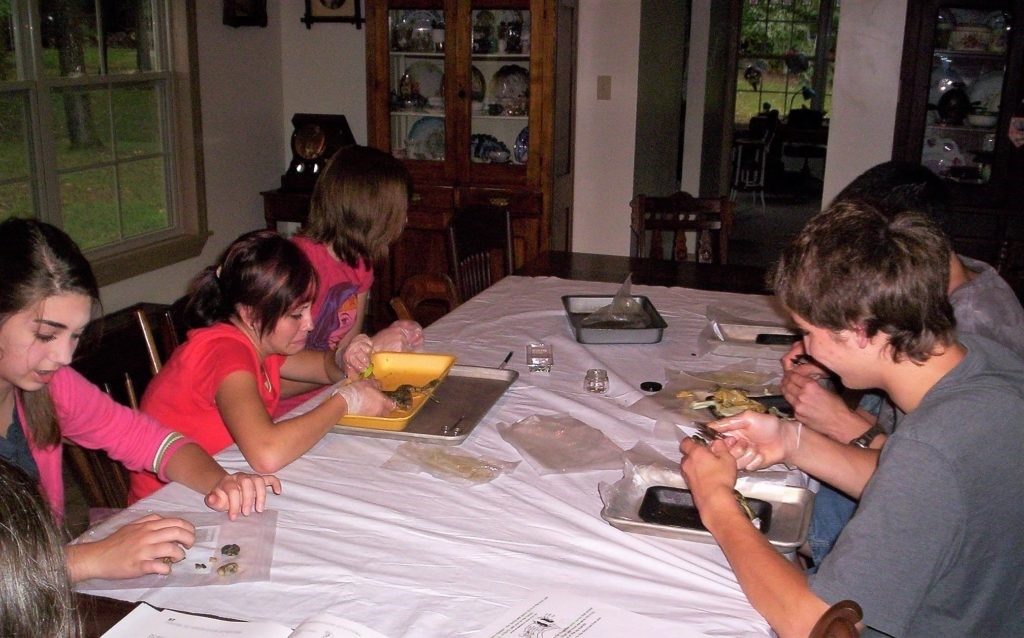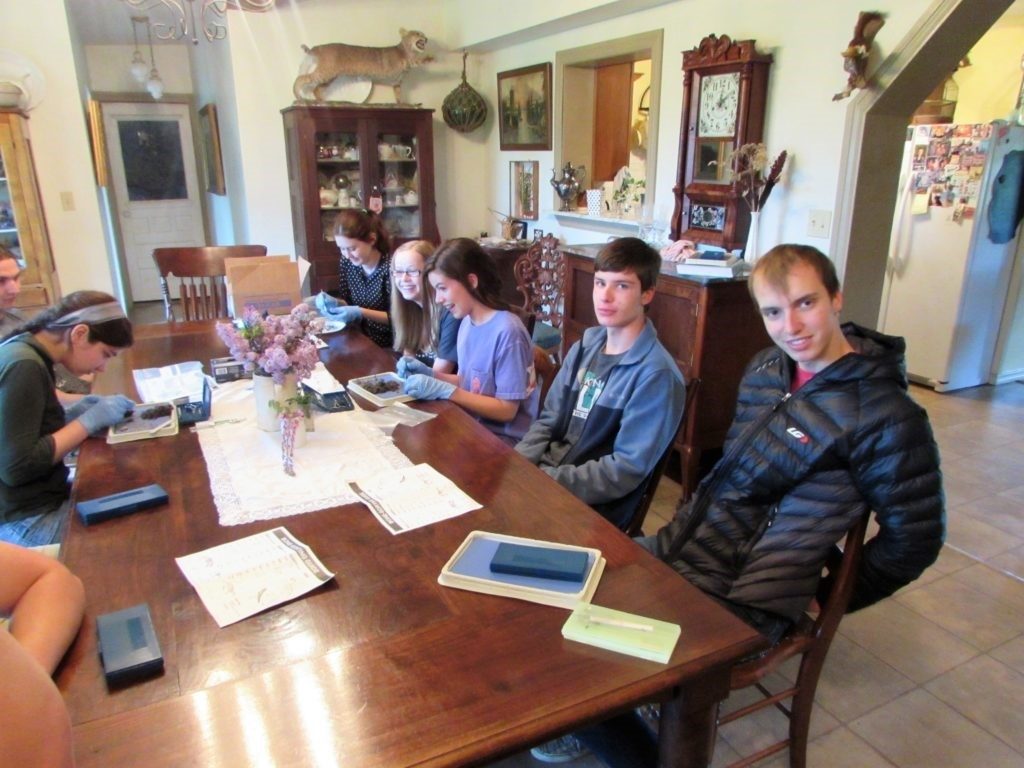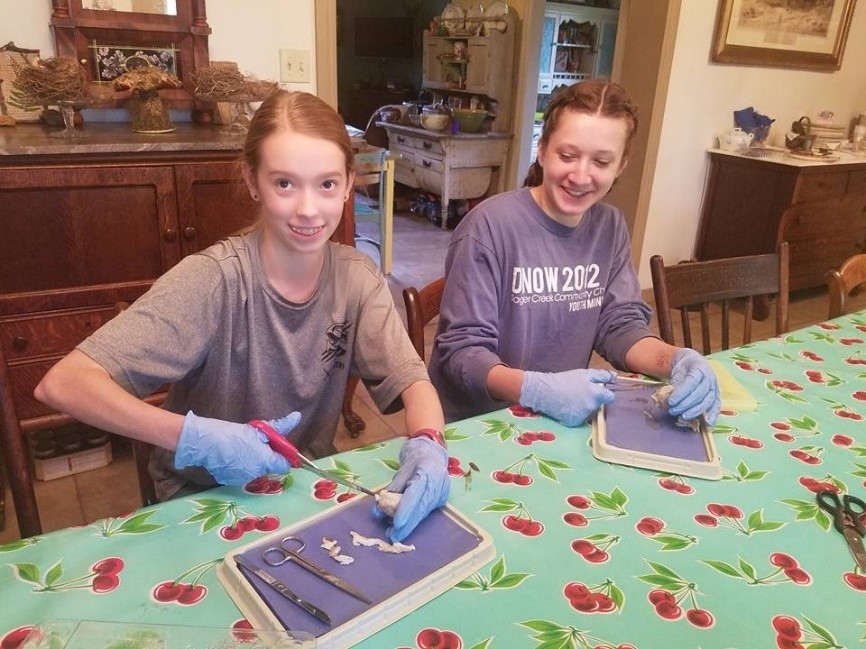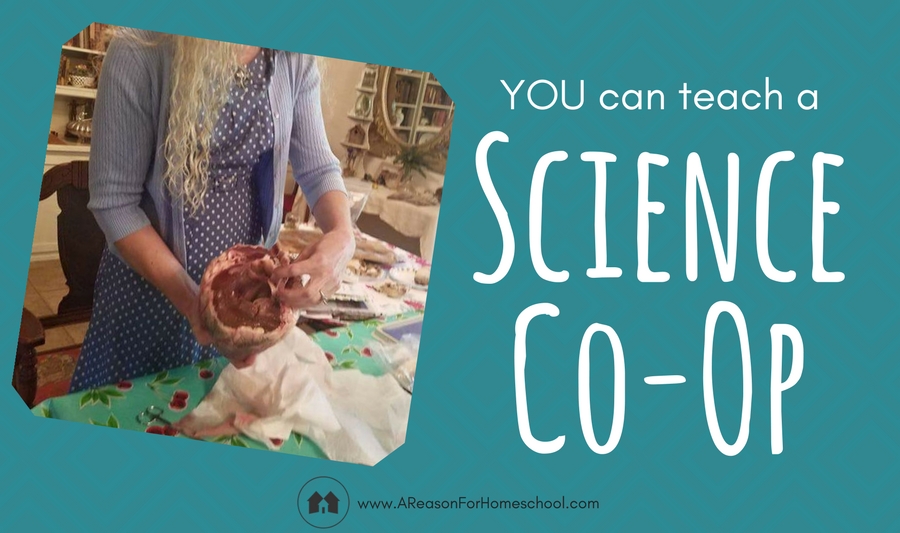Science Co-op. The words make me think of something the big homeschool organizations offer. Or perhaps something you can sign up for, for a fee. But in reality it isn’t anything more than two or more moms working together. I didn’t even know I was teaching in a co-op my first time around. It was simply my best friend and me, with our seven combined children, all stair-stepped in ages. Our idea was simply to have art and science together so that we could pool resources and our kids could enjoy some time with someone other than siblings. Later, I found out you can call that a co-op. That’s just how easy it is.

Einstein once said, “I have no special talents, I am only passionately curious.” A humble statement for a genius, but one that easily applies to most of us. You don’t need a degree to teach your kids science, nor do you have to know everything. Every single time I teach the subject I learn something new and it never fails to excite me. Did you know that starfish literally throw up their stomach, envelop and digest their food source, and then pull their stomach back in? Now you do! All you need to teach in a science co-op is the willingness to learn new things right along with the kids.

Now I teach a Biology co-op, only in this instance the parents bring their kids to my home. I have seven or eight kids in each class and the parents pay for the instruction and any dissection materials they will need. It works wonderfully, because the parents make sure their kids read the correct chapter and do any testing. In class, I do an overview of the chapter—which gives me the excuse to ply them with cookies at the same time—then I either lead an experiment, do a microscope study, or we do a dissection. So I think I get all the fun parts!
What is so great about a co-op? You divvy up responsibility. Unlike my situation where I’m providing a service, you could have a group of moms who bring their kids together. The mother who most likes gardening could take over the botany section. Someone who loves furry animals could assume the leadership of the mammal chapter. If you all dread the very thought of science—shame on you! 🙂—then it is even better. Each mom can take a chapter and teach, giving the other parents a much-appreciated break until their turn. That way, the torture is shared…ahem…I meant the teaching is shared. You get the idea.

I teach a high school class, but for younger students A Reason For has created a science program that has teacher plans, a simple lesson, and you can even purchase a kit with the materials needed. Each kit has supplies for up to 5 children to work together, so you would have enough for a good group. Best of all, the lessons are Bible-based so you are actually teaching your children scientific and biblical truths at the same time.
The great thing about science is you can often get dads to join in, or perhaps older brothers who enjoy bugs and critters could be paid a couple of dollars to teach a class of younger kids. They’d get the skills needed to lead a group, a little extra pocket money, and the respect and adoration of the younger set. All the while, the students see that a cool older kid is interested in the subject; they may have a better attitude than when mom tries to teach it!
I know you don’t want to hear it. You’re still spraying sunscreen on the kiddos and barbecuing in the backyard. But school will start back soon. Maybe you could consider a co-op, and split the work—and the rewards—with other families.
Share the science, share the fun!

Great information shared in an entertaining article. You make the reader want to get involved in co-op teaching. I love your enthusiasm.